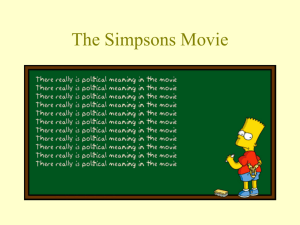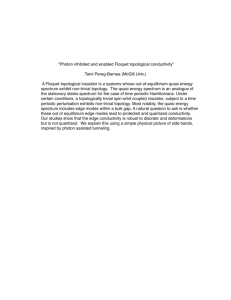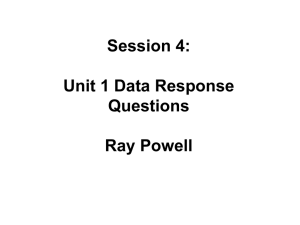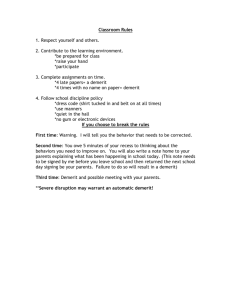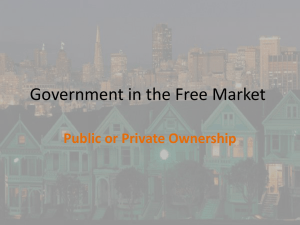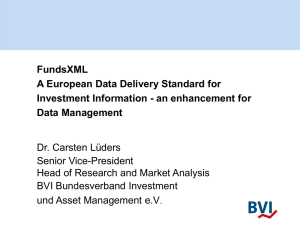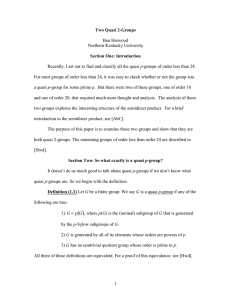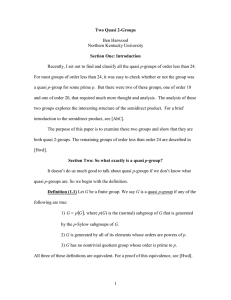Market Failure: Public Goods
advertisement
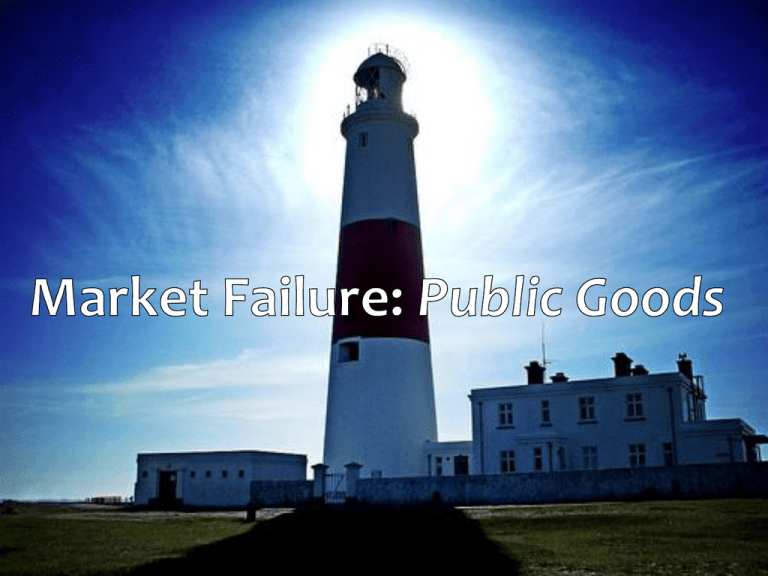
Starter: Recap Define a merit good Define a demerit good What is the link between these and market failures? Give 5 examples of each. Explain ways in which the government tries to increase consumption of merit goods and decrease consumption of demerit goods. Aims and Objectives Aim: Understand public goods and how they cause market failure. Objectives: Define public goods and quasi public goods. Describe the features of public goods and quasi public goods. Analyse how public goods cause market failure. Evaluate the need and benefit of public goods in the UK. Public Goods May cause market failure. Not because too much or too little is produced in the free market. Because it may not be produced at all! Can you think of any goods which if left to the free market would not be produced at all? Public Goods Must possess the following to be a public good. 1) Non Excludability When a public good is being consumed, the benefits of its consumption cannot be confined to only those people who have paid for it. Those who do not pay can enjoy the benefits of consumption at no financial cost. This is known as the free-rider problem. Non Excludability Example: Lighthouses and Ships Entrepreneur builds a lighthouse. Tries to charge each ship that passes. However some do not and benefit from the light by not crashing. There is no incentive to pay! The market fails to provide a service for which there is an obvious need. 2) Non-Rivalry Consumption of a public good by one person does not reduce the availability of a good to other people. Therefore we all consume the same amount of public goods even though our valuation of the benefit may differ. Airwaves – A Quasi Public Good Case Study Spot the Public Goods Public Goods Examples Street lighting Police services Fire Services National defence Flood control systems Roads Radio programmes Public Goods and Market Failure Market failure exists with public goods, as if left to the free market, these goods would not be supplied at all and quasi public goods would be under supplied. = complete market failure Who decides the level of output of public goods? Public Goods and Market Failure Government decides what output for society. Estimate the social benefit from consumption. Attributing a monetary value is difficult. Spending may increase before an election. Public Goods and Market Failure What happens when the free market attempts to provide public goods? New York Five Points Private fire brigades Competing to put fires out. Wasn’t more efficient. They just set fire to other properties in able to compete and appear to be doing the better job! DVD Clip Free Rider Problem Root of problem is free-rider problem. Consumers behaving rationally will attempt to ‘free ride’ from other consumers who purchase a good or service. Once one consumer has purchased a good, others cannot be prevented from benefitting from it. I pay my council tax My neighbour does not. Both houses are burgled in the same night. Should both houses receive police attention? • The public should pay for this public good! • Want the license fee to remain. • Want it to be made easier to catch evaders. • 17 million people value the service against 6 million. • Positive externalities. The General Public The BBC BBC as a Public Good Debate • The public shouldn’t pay for this public good! • Only over 60s value it. • Programming not appropriate for younger people. • Criticisms list. • Maybe it should be subscription, instead of taxation? • Why should people be allowed to evade it?


